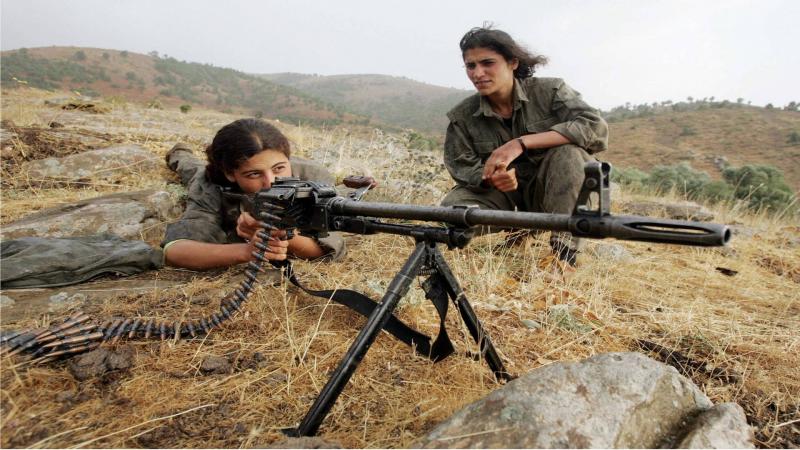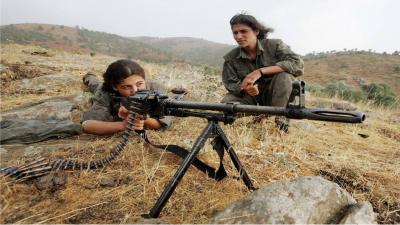The Kurdistan Workers' Party (PKK) claimed responsibility for a bomb explosion in Turkey's capital, Ankara, marking the first attack of its kind there in years, prompting Turkey to retaliate both in Iraq and domestically. Below are details about the group:
**Kurdistan Workers' Party (PKK)**
The PKK is an armed group founded by Abdullah Öcalan in southeastern Turkey in 1978, based on an ideology derived from Marxism-Leninism.
**What does the group want?**
The group began its insurgency against the Turkish state in 1984, initially aiming to establish an independent Kurdish state. It later revised its goals to focus on increasing rights for Kurds and achieving limited autonomy in southeastern Turkey. The conflict has claimed the lives of more than 40,000 people, most of whom are militants. The majority of the fighting historically took place in the rural areas of southeastern Turkey, which has a Kurdish majority, but the party has also launched attacks in urban areas. Turkey, the United States, and the European Union have designated the PKK as a terrorist organization.
**What is the "Immortal Battalion"?**
The PKK stated that the Ankara attack was carried out by a member of a unit known as the "Immortal Battalion." One of the PKK leaders had previously described this unit as a group of suicide bombers from sleeper cells.
**History of the group**
The PKK was active in Syria until 1998, when Öcalan was forced to flee amid increasing Turkish pressure. Turkish special forces captured him months later in Kenya, and a Turkish court sentenced him to death in 1999. His sentence was commuted to life imprisonment in October 2002 after Turkey abolished the death penalty, and he remains incarcerated on an island near Istanbul. The intensity of fighting diminished after Öcalan's arrest, resulting in several unilateral ceasefire waves by the PKK and the withdrawal of rebel fighters from Turkey.
After violence erupted again, Turkey and the PKK engaged in peace talks starting in late 2012. However, this process and the ceasefire collapsed in July 2015, unleashing the deadliest periods of the conflict and widespread destruction in some urban areas of southeastern Turkey.
**Where is the conflict concentrated now?**
In recent years, the conflict has shifted from southeastern Turkey to primarily focus on northern Iraq, where the PKK has bases in the mountains. Turkey maintains dozens of military sites in Iraqi territory and has launched operations against militants there. Turkey has also been conducting airstrikes using warplanes and drones. Iraqi President Abdul Latif Rashid stated in remarks broadcast today that Iraq rejects Turkish airstrikes or the presence of Turkish bases in the Kurdistan region, expressing hope for an agreement with Ankara to resolve this issue.
Turkey is also targeting the Kurdish People's Protection Units (YPG) militia in Syria, which it considers affiliated with the PKK, and has conducted operations to push the group away from its borders. However, the YPG is also a leading force in the U.S.-led coalition against ISIS. U.S. support for the Syrian Democratic Forces has been a source of tension between the United States and Turkey for years.




